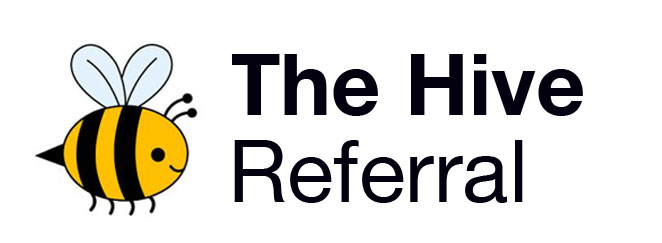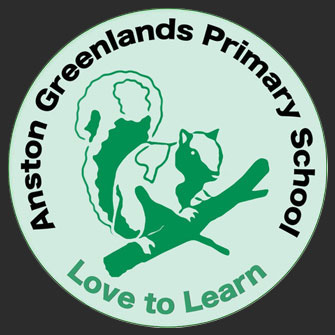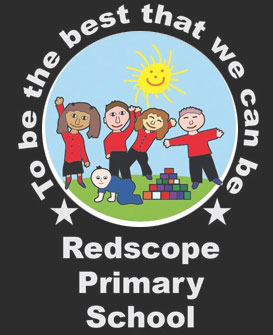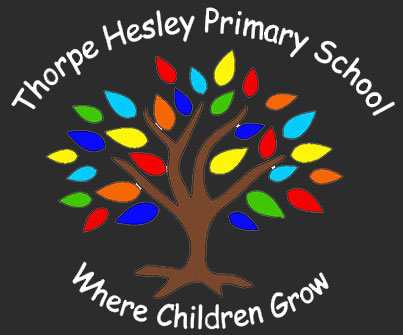Wingfield Guides
- Keeping Safe and Personal Wellbeing – A guide created by Wingfield Academy aimed at students.
- Safeguarding our Children Leaflet – A Wingfield guide for parents & carers
- Supporting Young People Online – English
- Supporting Young People Online (Arabic)
- Supporting Young People Online – (Urdu)
Local Services
- Rotherham Crisis Service – 01709 302670 (24 hours) for those aged 16 plus
- Rotherham Children and Adolescent Mental Health Service (CAMHS) – CAMHS Duty team (Monday-Friday) can be contacted on 01709 304808 CAMHS out of hours for emergencies access via A&E Please note the services are shut on public bank holidays but the out of hours service continues to operate.
- My Mind Matters – Positive mental health and emotional wellbeing for children and young people in Rotherham
- Rotherham Early Help – Triage Service 9 – 5 (not on bank holidays) 01709 334905
- Rotherham Local Safeguarding Children Board
- Report child abuse to Rotherham Council – 01709 336080
Water Safety
The hot weather can make it very tempting to swim and play in open water, such and lakes, rivers and reservoirs. However, this can often be very dangerous and even life threatening!
The water can be very deep, cold and fast making it difficult for even the strongest of swimmers. The water is also often dirty, which could make you ill and hide hazards that may
be in the water. We would advise against open water swimming! For further information click here.
Sexual Harassment and Violence: Sources of Support and Information
- Barnardo’s – UK charity caring for and supporting some of the most vulnerable children and young people through their range of services.
- NSPCC – Children’s charity specialising in child protection with statutory powers enabling them to take action and safeguard children at risk of abuse
- Anti-Bullying Alliance – Detailed information for anyone being bullied, along with advice for parents and schools. Signposts to various helplines and websites for further support.
- Victim Support– Supporting children and young people who have been affected by crime.
- Childline – provides free and confidential advice for children and young people.
Support for Parents/Carers
- Childnet: Advice for parents and carers to keep children safe online – Advice and resources to help parents and carers keep children safe online.
- Parentzone – Provides expert information and resources to help make the internet work for families.
- NCA CEOP Thinkuknow advice for parents: – Advice/resources on how to approach and deal with concerns about what children may be doing online including advice about how to help challenge harmful sexual attitudes and how to start a conversation to Supporting Positive Sexual Behaviour.
Prevent: Preventing extremism and radicalisation
If someone is in immediate danger or you hear or see something that may be terrorist related, call 999 or the ANTI TERRORIST Hot line on 0800 789321.
- Let’s Talk About It – Prevent– A practical guide to all members of the public regarding extremism and radicalisation.
- Educate Against Hate – – Advice for parents/carers regarding radicalisation, extremism and building student resilience.
- NSPCC Radicalisation – Information for children focusing on all elements of extremism.
Concerns or worries about children who may be being drawn into radicalisation or extremism should be referred to Rotherham MASH; 01709 336080.
Operation encompass
Operation Encompass is a police and education early information safeguarding partnership enabling schools to offer immediate support to children experiencing domestic abuse. School is alerted when the Police have been in called to support an domestic abuse incident. The school is made aware so necessary support can be given to children and young people who may be impacted by what they may have seen, heard or witness, external to school. This information is provided to the Designated Safeguarding Lead only. This information is confidential.
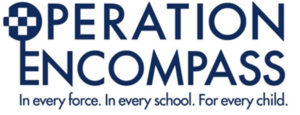
e-Safety
In school we aim to raise awareness linked to e-safety so that students:
- Can make their own informed decisions based on accurate information
- Are aware of responsibilities linked to their actions when using various forms technology e.g. internet; chat rooms; text; e-mail
- Know how to report suspicious behaviour on the internet
- Know where they can go for support, help and advice, in addition to that offered at home and school.
E-safety is an important part of keeping children safe online. Within the Academy there are measures in place which are constantly monitored, to help safeguard pupils from any potential risks. E-safety is taught to all pupils explaining and demonstrating how to stay safe and behave appropriately online. We can only be successful in keeping students safe online if we work in partnership with parents and carers. Your help is needed to support the Academy and talk to your child and monitor that their online behaviour is healthy and appropriate.
We are seeing an increase in the number of incidents that involve young people sending, and being in receipt of indecent images. It is a criminal offence for any minor (person under the age of 18) to receive and / or distribute images of an indecent nature. In such circumstances, the Academy has a duty of care to inform both South Yorkshire Police and Social Care. Young people are accessing a greater amount of online content than we were ever exposed to in our childhood. Your child may be accessing and engaging with technology that you have no knowledge or experience of. It is essential that you discuss boundaries with your child and clearly explain your expectation of them.
At Wingfield Academy we operate a very strict policy regarding student use of mobile phones. We champion their use to aid and assist learning however these opportunities are managed exclusively by Academy staff. The Academy operates a zero tolerance policy regarding the use of mobile phones in unstructured times such as at break and at lunchtime. We recognise that this is exceptionally challenge to administer however we prioritise the safety of our student body and this school rules remains a constant.
Please could we encourage you to discuss this matter with your children and stress the importance of ensuring that their online activity operates within the boundary of safety.
The attached information will offer support and guidance to families regarding online safety Keeping-children-safe-online
Below are links to some websites we feel may be useful:
Useful Websites
- Anxiety UK – Worried that everyone is coping better with exams than you? Don’t be. Anxiety UK help you to combat stress during the examination period.
- CBBC – Stay Safe – Your ultimate internet survival guide. Here are the tips and tricks you’ll need to stay safe online, beat the cyber-bullies and become a super-surfer.
- CEOP – Has something happened online that has made you feel worried or unsafe? Make a report to one of CEOP’s Child Protection Advisors
- Childline – You can contact ChildLine about anything. No problem is too big or too small. Whatever your worry it’s better out than in.
- Childline – Exam Stress – Useful tips for coping with stress around the examination period.
- Childnet – In the Childnet Hub you’ll find top tips, competitions, blogs and advice to help you to use the internet safely, responsibly and positively.
- Cyberbullying – Advice for Parents (pdf)
- National Online Safety: Platform Guides – a large number of platform specific (Facebook, Snapchat, Roblox…) guides for parents
- NHS – Coping With Exam Stress – Looking out for the early signs of stress and how it can be combatted.
- NSPCC – We’re the leading children’s charity fighting to end child abuse in the UK and Channel Islands.
- NSPCC – Share Aware – Help your child stay safe on social networks, apps and games.
- Stop it now! – Stop it Now! UK and Ireland is a child sexual abuse prevention campaign.
- Think U Know – The parent’s guide to the internet.
- UK Safer Internet Centre – online safety tips, advice & resources
- Virtual Global Taskforce – made up of police forces from around the world working together to fight online child abuse. Children and families can report their concerns with websites, chat rooms, pop ups etc. It also gives advice for safe internet use.
- Who Is Hosting This – Parent’s Guide to Internet Safety
- Young Minds – Committed to helping students and parents with any problems which may be encountered at school.
- SWGFL– So you got naked online…’ is a resource that helps and advises young people who may find themselves in a situation where they (or a friend) have put a sexting image or video online and have lost control over that content and who it’s being shared with.
- Keeping-children-safe-online
Year 11
It is widely acknowledged that young people experience an increasing amount of pressure during their final year in Key Stage 4. Year 11 is an important year as it during this academic period that young people sit their GCSE examinations. Wellbeing and mental health can experience a ‘dip’ during this time. This is a natural occurrence and parents/carers should not be unduly concerned about this.
At Wingfield Academy we strive to ensure that our students receive the information and the support they need to be able to manage the pressures that exist within Year 11. The Academy works closely with Mental Health professionals from NHS Rotherham to ‘normalise’ the emotions and feelings that some young people experience. The Academy also employs our own Young Peoples Counsellor to support the additional needs of any students who may benefit from talking therapy.
Year 11 Form Tutors and all members of SLT are on hand to talk to and support all the students within the Academy. We know our young people very well, they trust us and we care deeply about their wellbeing.
You may find the websites on the right of use when supporting your child / children.
If you require any further information, please do not hesitate to contact the Academy and speak to your child’s Form Tutor, alternatively speak to Ms Julie Harrop ( Designated Safeguarding Lead).
Below is a collection of useful links:
Useful Websites
- BBC – Exam Stress – Tips on how to deal with feelings of stress and anxiety which may arise during examination periods
- BBC – Health & Wellbeing – Offers advice and information on a variety of issues which might be influencing the way you’re feeling.
- B-Eat – Beating Eating Disorders – helplines, online support and a network of UK-wide self-help groups to help adults and young people in the UK beat their eating disorders
- Childline – You can contact ChildLine about anything. No problem is too big or too small. Whatever your worry it’s better out than in.
- Epic Friends – This site is all about helping you to help your friends who might be struggling to cope emotionally
- MentalHealth.org.uk – The Truth about Self Harm – aims to help you understand more about self-harm and what to do if you are worried about yourself or someone else
- My Mind Matters – Positive mental health and emotional wellbeing for children and young people in Rotherham
- NHS Moodzone – deals with feelings, mood and common life problems that are not clinical diagnoses.
- Papyrus – Prevention Of Teen Suicide – information for those worried about someone else and where to get help
- Safe@Last – Work with young people who are at risk of running away.
- Samaritans – 24 hour support – If something’s troubling you, then get in touch.
- Time To Change – Time to Change is England’s biggest programme to challenge mental health stigma and discrimination.
- Winston’s Wish – Bereavement – Telephone 08452 03 04 05
- Young Minds – Information about mental health services available to support children and young people.
Relationships
In PSHE/RSHE (relationships and sexual health education) you will study a unit of work focusing on relationships in each year. This ranges from puberty to relationships and sexual health.
Below is a collection of useful links:
Useful Websites
- BBC – Sex and Relationships
- Childline – You can contact ChildLine about anything. No problem is too big or too small. Whatever your worry it’s better out than in.
- Childline / NSPCC – Speak Out Stay Safe – Speak out Stay safe programme so that a generation of children have the knowledge and understanding they need to stay safe from abuse and neglect.
- FPA – Taking to kids about sex and relationships – Talking to your children about growing up, relationships, sex (and everything else that goes with it) doesn’t have to be difficult.
- NSPCC – Talking about sex – Talking PANTS teaches children important messages, like their body belongs to them and they should tell an adult if they’re upset or worried.
- Stonewall – LGBT – Here to let all lesbian, gay, bi and trans people, here and abroad, know they’re not alone.
- Stop it now! – Stop it Now! UK and Ireland is a child sexual abuse prevention campaign.
- This is ABUSE – Violence Free Relationships – Healthy relationships are all about respecting each other. You should feel loved, safe and free to be yourself.
Risk
In PSHE/RSHE we cover a variety of topics to educate you on the risks associated with them so that you can make informed choices.
Topics include personal safety and substance misuse. Below are some links to some websites we feel may be of interest to you containing information, support and advice available around substances.
Below are links to some websites we feel may be useful:
Useful Websites
- Alcohol Education Trust – Advice for parents/carers on discussing alcohol with their children.
- BBC – Drink & Drugs – Helping you get through life- contains information on substance misuse.
- Cold Water Kills – Yorkshire Water – A film that exposes the life threatening risks of swimming in reservoirs has been made to help bring an ends to tragic accidents at Yorkshire’s reservoirs that have occurred in recent years.
- Childline – You can contact ChildLine about anything. No problem is too big or too small. Whatever your worry it’s better out than in.
- Know Drugs – Provides parents and carers with all of the essential information and advice you need to understand the important issues around young people’s drug use.
- Talk to Frank – Know what’s what; the glossary of drugs has all the info and the slang.
- Think U Know – The parent’s guide to the internet.







